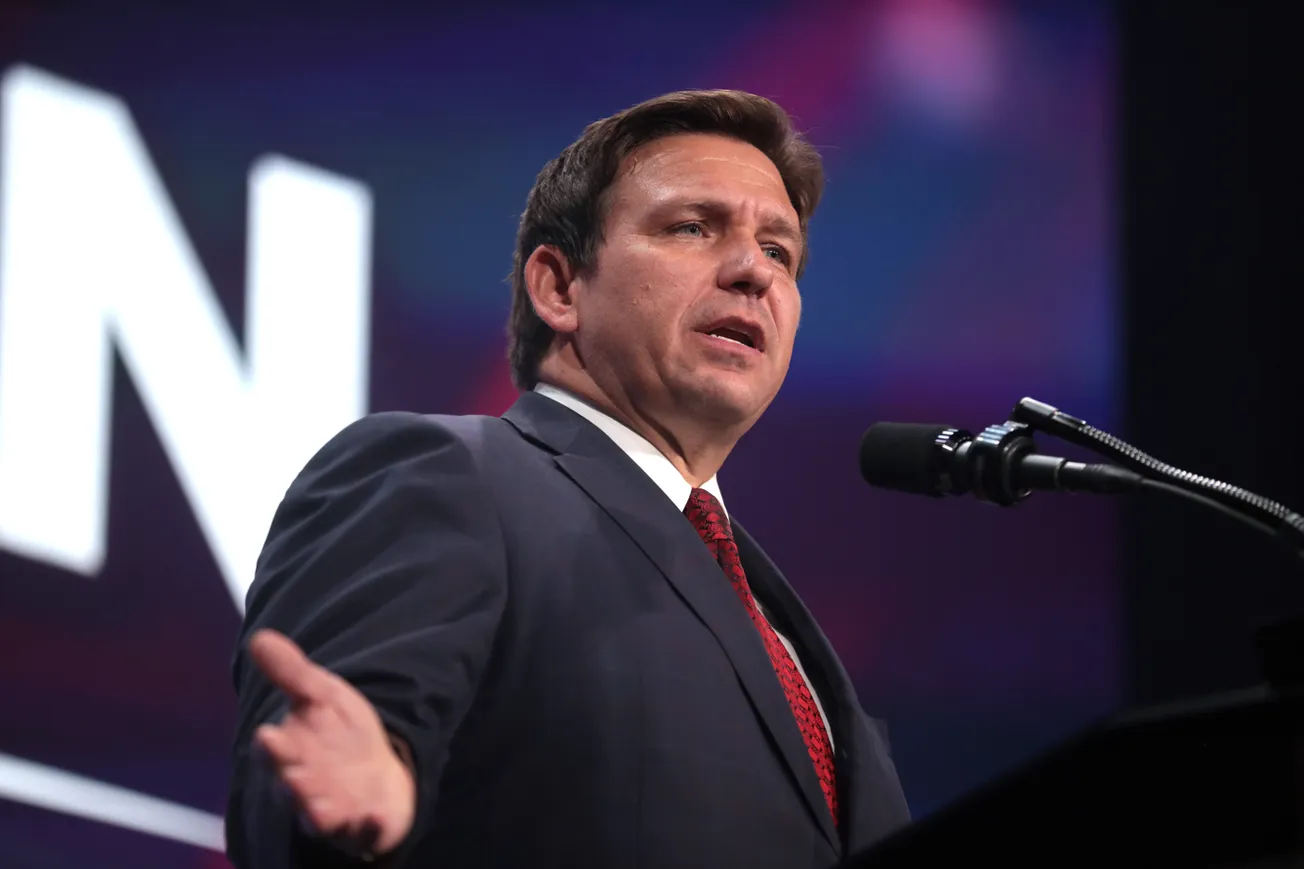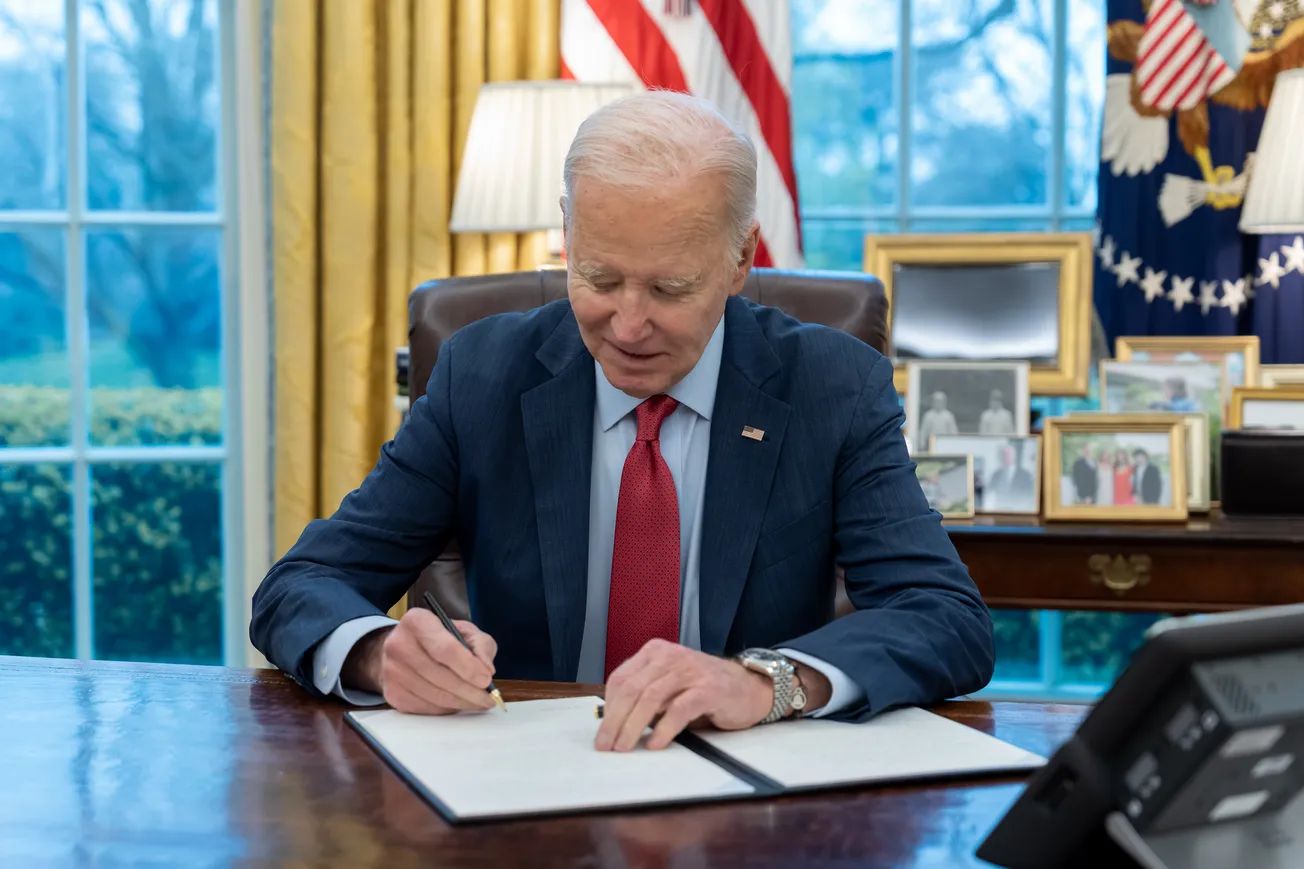The mainstream GOP had a fit when Florida Governor Ron DeSantis issued a long tweet in response to Tucker Carlson's list of questions on Ukraine.
"While the U.S. has many vital national interests – securing our borders, addressing the crisis of readiness within our military, achieving energy security and independence, and checking the economic, cultural, and military power of the Chinese Communist Party – becoming further entangled in a territorial dispute between Ukraine and Russia is not one of them."
Liz Cheney, the embattled Republican thrown out of her state party in Wyoming and lost a primary by nearly a 2-1 margin last August, said: "DeSantis is wrong and seems to have forgotten the lessons of Ronald Reagan."
South Carolina Senator Lindsey Graham, who, along with former Senator John McCain, led the Neocons in the Senate, was true to character: "To those who believe that Russia's unprovoked and barbaric invasion of Ukraine is not a priority for the United States – you are missing a lot."
Sen. Marco Rubio (R-FL), having won reelection easily in Florida on DeSantis's coattails last November and refusing to run for the GOP nomination in 2024 lest former President Trump belittles him again, sought to criticize DeSantis from the safety of the Senate. "It's not a territorial dispute … anymore than ... if the United States decided that it wanted to invade Canada or take over the Bahamas."
The complaints about the establishment GOP seemed so out-of-touch with reality. Invoking Reagan today is pointless - the world is so different that Reagan would be alarmed.
Americans would welcome a return to conditions in 1988 when President Reagan left office. The 40th president oversaw a rapidly growing economy from a devastating inflationary bubble, oil shock, and the Iranian revolution of the 1970s. Total debt was $2.1 trillion, not the $31.4 trillion we have today, and rapidly growing. No terrorism threatened the United States at that time. China was an infant just learning to walk. Iran was not a threat. America had not yet engaged in the first Gulf War in Iraq. The U.S. had not been attacked on its soil like on 9/11. America had not fought two simultaneous wars in Iraq and Afghanistan immediately afterward.
Besides, Reagan pounced on Soviet troubles to build on his brilliant "Peace Through Strength" strategy. Moscow had committed suicide by invading Afghanistan and, facing defeat there, was already weak. United States intelligence had begun filing report after report saying that Eastern Bloc countries like Poland and Hungary were ready to engage in a revolution to throw out communism.
The world today is vastly different. By engaging in relentless NATO expansion through February 2008, the West sought to establish geopolitical and military supremacy over a Russia attempting to re-establish economic cooperation. The Czech Republic, Hungary, Poland, Bulgaria, Estonia, Latvia, Lithuania, Romania, Slovakia, and Slovenia - all erstwhile members of the former Soviet Union with little in common with Russian history and culture - had all moved into the welcoming security blanket provided by the West.
But Russia had drawn a red line with two countries - Georgia and Ukraine - insisting that their assimilation into NATO was unacceptable to Moscow. Both countries had a sizable Russian ethnic population, and their integration with NATO threatened Russia at its borders. When the West could not agree to offer Ukraine and Georgia a gateway to possible entry, Russia reacted.
On April 4, 2008, Deputy Foreign Minister Alexander Grushko warned on the sidelines of the NATO summit: "Georgia's and Ukraine's membership in the alliance is a huge strategic mistake which would have the most serious consequences for pan-European security."
In October, we noted that former American presidents understood this issue well. Biden's predecessors were reluctant to engage in the Russia-Ukraine conflict since Crimea in 2014, although the Crimea land grab was not that different from last year's invasion. Of course, President Putin paid the price for his Crimea actions - Russia was ejected from the G8.
In November 2021, President Biden spearheaded America's signing of a needless security agreement with Ukraine, with an entire section devoted to countering Russian aggression, although, for the seven years following the Crimean annexation, the Donbas region in Eastern Ukraine was relatively peaceful. America had crossed Putin's redline, which Russia defined in existential terms.
To say that the Russian invasion of Ukraine was unprovoked is historically incorrect - we have argued that the Biden administration bears significant blame for the war, although Putin started it. On the first anniversary of Russia's invasion, Putin announced that Russia would no longer abide by the New Start Treaty of nuclear inspections and disarmament. Does the GOP establishment risk "winning" the war and encourage Putin to push the red button? Do the neocons want World War III? And why aren't the establishment leaders promoting peace as an alternative?
In these columns, we have set aside whole editorial pieces outlining the many themes that highlighted DeSantis's response: The "as long as it takes" war is irrational and dangerous. The costs to achieve success would be astronomical. America's obsession with maintaining the Liberal International Order emboldens China to create strong regional alliances. America should focus more on China than Ukraine. And Americans are entitled to know how billions of U.S. taxpayer dollars are being utilized in Ukraine.
As financial markets worldwide crumble in a banking contagion and significant uncertainty remains about the global economy, Governor DeSantis is right about Ukraine. It is time to stop the war, avoid escalation, lower our debt obligations, reinvest in energy security, and secure our southern border. These are far more important to Americans than further involvement in the Ukrainian war. And, if, indeed, America's involvement in the war is part of its role as the world leader of democracies, then Washington must give peace a chance instead of prolonging a costly and dangerous war indefinitely.






